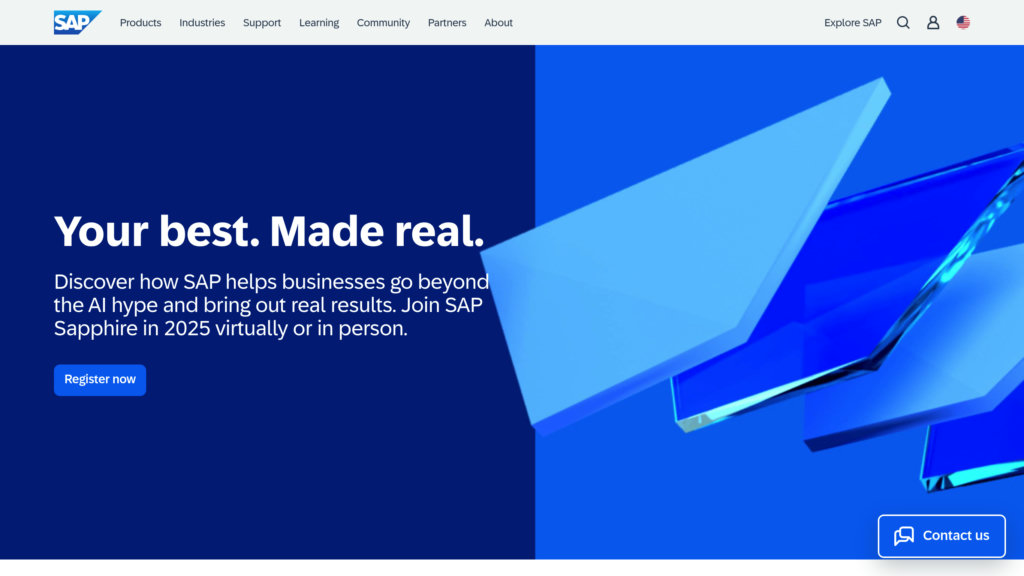SAP ERP
Integrated business management platform for finance, supply chain and HR
Introduction
What is SAP ERP?
SAP ERP stands as a sophisticated, all-in-one software suite engineered to consolidate and optimize essential business operations. It brings together functions from finance, human resources, manufacturing, sales, and the supply chain into a single, cohesive system. This integration allows companies to automate processes, minimize hands-on work, and elevate data precision by ensuring smooth information flow between different units. By enabling real-time cooperation and insights, SAP ERP assists enterprises in increasing productivity, cutting expenses, and tailoring the system to their unique sector demands via its flexible, module-based design.
Key Features:
• Unified Business Operations: Merges modules for finance, human capital, production, sales, and supply chain into a single, end-to-end management environment.
• Real-Time Information Flow: Promotes effortless data exchange throughout the organization, breaking down information barriers and delivering precise, up-to-the-minute business intelligence.
• Process Automation and Streamlining: Automates repetitive tasks and standard procedures to lower mistake rates, boost productivity, and reallocate staff to higher-value initiatives.
• Flexible and Expandable Design: Offers a modular framework that lets businesses tailor and grow their ERP system in line with specific industry needs and expansion plans.
• End-to-End Financial Control: Manages accounting, financial operations, reporting, and regulatory compliance to strengthen fiscal oversight and clarity.
• Intelligent Supply Chain Solutions: Enhances procurement, stock management, logistics, and demand prediction to build a more robust supply network and decrease operational costs.
Use Cases:
• Streamlining Manufacturing: Refines production scheduling, stock management, and supply chain synchronization to elevate manufacturing output.
• Optimizing Financial Management: Automates bookkeeping, financial reporting, and compliance activities to ensure fiscal accuracy and meet regulatory standards.
• Enhancing Human Resources: Handles personnel records, payroll, talent acquisition, and performance reviews to improve workforce effectiveness and satisfaction.
• Improving Retail and Sales: Combines sales orders, customer information, and stock levels to enhance the customer experience and speed up order processing.
• Building Agile Supply Chains: Delivers live visibility and analytical tools to manage disruptions and respond effectively to changing market conditions.
